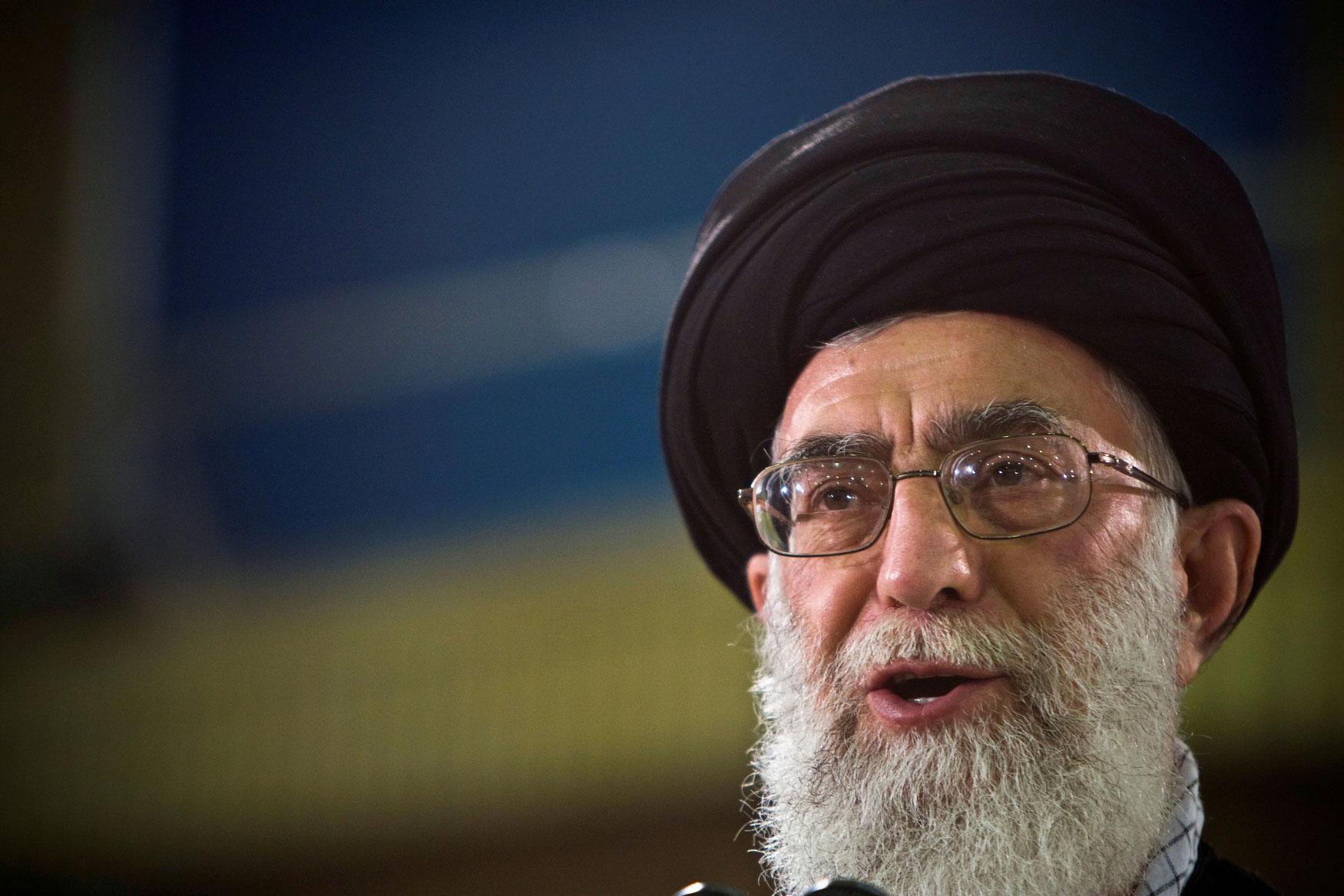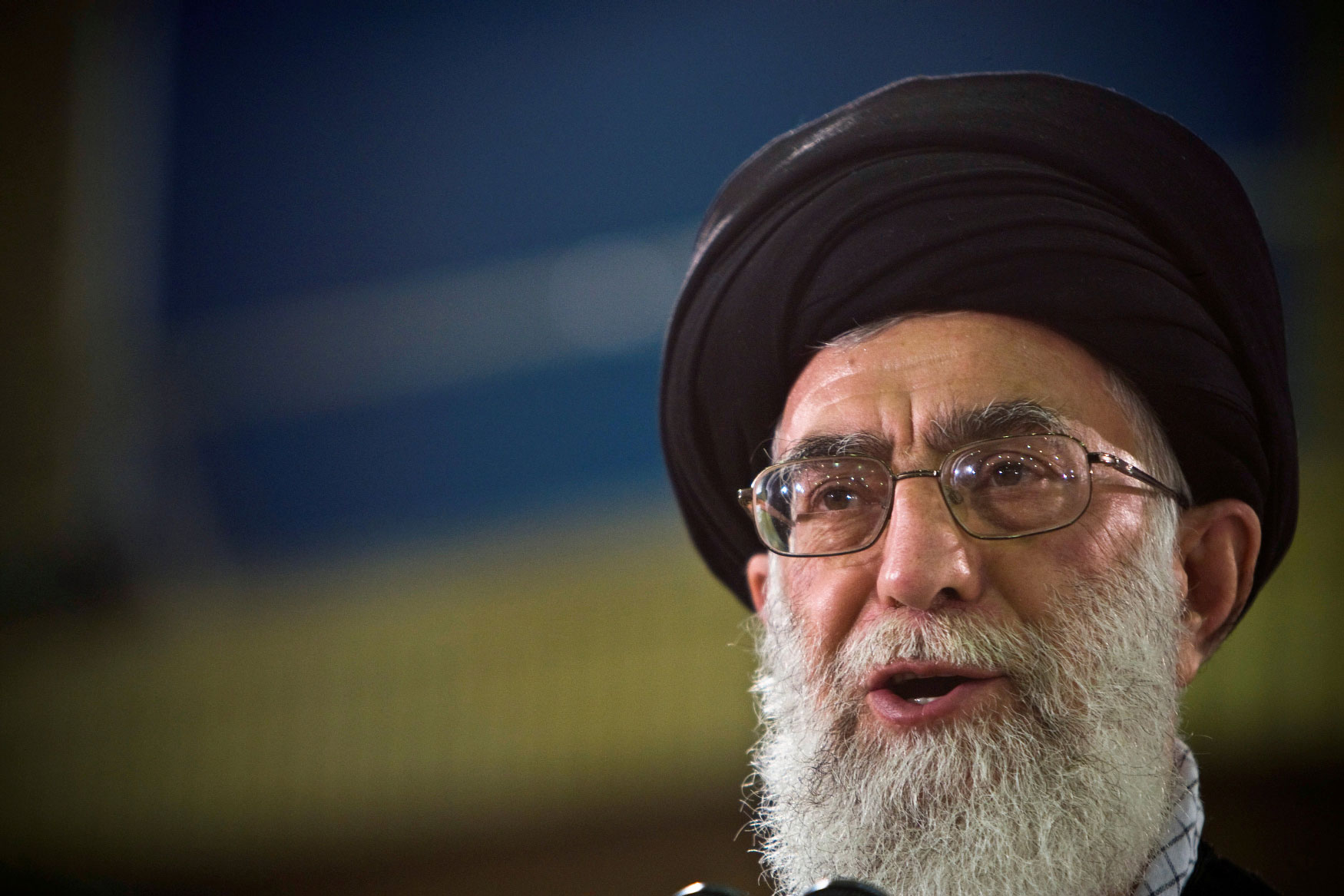Iran's Khamenei says Western powers 'cannot be trusted'
TEHRAN - Iran is determined to boost its defence capabilities despite mounting pressure from the United States and its allies to curb its ballistic missile programme, Supreme Leader Ayatollah Ali Khamenei said on Thursday.
"We need to take Iran to a point that enemy understand that they cannot threaten Iran ... America's sanctions will make Iran self-sufficient," Khamenei said in a speech broadcast live on state TV.
President Donald Trump withdrew the United States last May from a 2015 nuclear deal between Iran and six major powers, saying it gave too much away to Iran, and reimposed far-reaching U.S. sanctions.
The US sanctions aim to force Iran to accept tougher restrictions on its nuclear work, drop its ballistic missile program and scale back support for militant proxies in Middle East conflicts from Yemen to Syria.
Iran says its missile programme is purely defensive and has rejected the curbs on it demanded by the United States. Tehran says it has missiles with a range of up to 2,000 km (1,250 miles), which puts Israel and U.S. military bases in the region within reach.
The other signatories to the nuclear deal - Germany, France, Britain, the European Union, Russia and China - have remained committed to the agreement and have been trying to salvage the pact by a mechanism to circumvent Trump's sanctions.
Khamenei, a hardliner who has the ultimate say on all major foreign and domestic policy in the Islamic Republic, said the European signatories of the deal had failed to maintain Iran's economic interests.
"They have always stabbed Iran in the back ... The Western countries have proved they cannot be trusted," he said in the speech in the holy Shiite city of Mashhad.
Iranian leaders have threatened to exit the nuclear deal unless the European powers enable Tehran to receive economic benefits.
"This mechanism set by the Europeans is like a bitter joke," Khamenei said, referring to a channel opened by the European signatories of the deal for non-dollar trade with Iran to get around the U.S. sanction.
"This financial channel they recently set up resembles a joke, a bitter joke," Khamenei told a thousands-strong congregation gathered to mark the Iranian New Year.
Britain, France and Germany launched the special payment system called INSTEX -- Instrument in Support of Trade Exchanges -- in late January after President Donald Trump abruptly quit the 2015 nuclear deal between Iran and world powers in May last year.
The three countries were the European signatories to the deal, also signed by the US, Russia and China, that curbed Tehran's nuclear ambitions in return for sanctions relief.
London, Paris and Berlin launched the device in the hope it will help save the deal by allowing Tehran to keep trading with European companies despite Washington reimposing sanctions.
"The difference between what they are obligated to do and what they are proposing is as far as the earth is from the sky," Khamenei said.
"We should completely forego (any hope) of help or cooperation from Westerners in strengthening our economy, we shouldn't wait for them," he said.
"Once again the Europeans have stabbed us in the back, they have betrayed us," Khamenei said, cursing Western politicians as "savages".
"They wear suits, they put on ties and eau de cologne and carry Samsonite briefcases but they are savages," Khamenei said.
"What I am saying does not mean (Iran) should cut Western ties, not at all... there is no problem in having relations with them, but trusting them is a mistake, don't trust them," he said.
Iran on Tuesday registered a parallel structure to INSTEX called the Special Trade and Finance Institute or STFI, the semi-official ISNA news agency reported.
"With the registration of STFI, we expect that, in cooperation with INSTEX, it would facilitate trade between Iran and Europe and be influential in countering limitations caused by US sanctions," said Iran's central bank governor Abdolnaser Hemmati.
Earlier on Thursday, Khamenei called the economic difficulties of Iranians the most urgent problem facing the country.
"Specially in recent months the difficulties for people's livelihoods have increased," Khamenei said in a prerecorded message to mark the March 21 start of the New Year.
"The economy is the country's urgent problem, it's the country's (most) serious and primary problem," he said, pointing to the rial's devaluation, decline in purchasing power and falling production.


